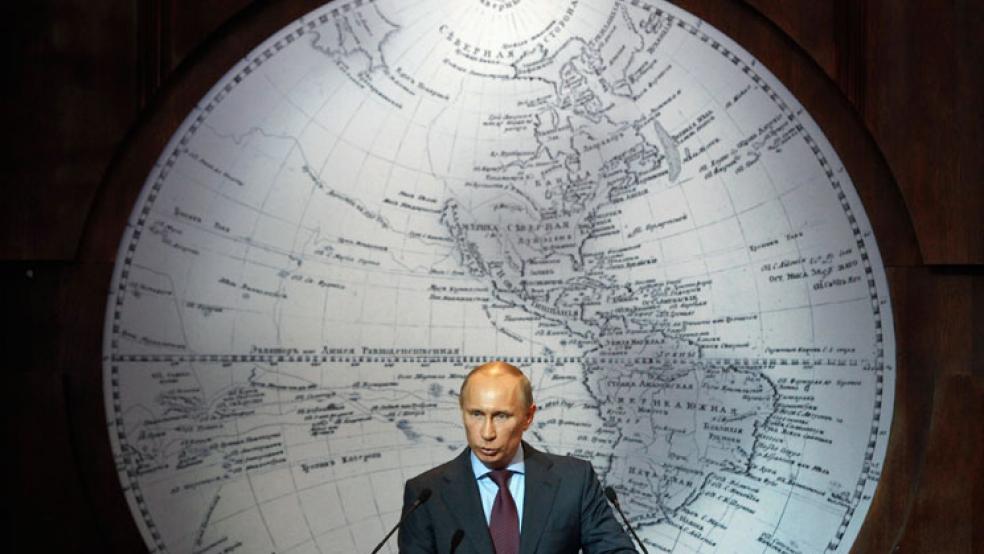Concerns about Russian aggression in the Baltic Sea increased Tuesday, with officials in Finland reporting that they had dropped miniature depth charges at an unidentified submarine spotted in the country’s territorial waters. On the same day, Swedish officials cited the escalating military tension as a reason to continue re-arming the strategically important Gotland Island off that country’s eastern coast.
Around noon on Monday, according to Finnish defense officials, a monitoring system detected what appeared to be a submarine in the waters off Helsinki. Ships were dispatched to search the area, and after they made additional contact on Tuesday, they dropped depth charges near the vessel to drive it off.
Related: Defiant Putin Calls Invasion of Crimea ‘Historic Justice’
A Finnish naval spokesman told reporters that the charges dropped were not intended to damage the vessel – they were the size of a hand grenade – but were meant to make it clear that its presence had not gone unnoticed.
What government officials did not specify, but was widely assumed, was that if there was a submarine in Finland’s territorial waters, it was probably Russian. Countries in the Baltic region and even as far away as the United Kingdom have seen increasingly aggressive activity by Russian warplanes and naval vessels.
The reports about Russia led to increased calls Tuesday for the government of Sweden to re-establish a strong military presence on the Baltic island of Gotland, which lies in a strategically important area northwest of the Russian enclave of Kaliningrad. The chairman of the legislature’s defense committee told fellow lawmakers that Russian President Vladimir Putin is “preparing for war.” Media reports say the Swedish government now aims to reverse what has been dramatic reduction in military presence on Gotland in recent years by stationing an infantry battle group, a tank company and new naval assets there in the future.
Related: Did Putin Snag U.S. Uranium and Sell it to Iran?
The anxiety about Russian intentions in Finland and Sweden is mirrored in numerous countries in northern Europe. Since the Russian invasion of Ukraine’s Crimean peninsula last year, and in the face of its continued support of armed rebellion in eastern Ukraine, many have called for military expansion and have sought closer cooperation with the countries of the North Atlantic Treaty Organization, which has traditionally served as a counterweight against Russia.
Putin did nothing to ease his neighbors’ concerns when, over the weekend, Russian state television released a documentary in which Putin said that, among other things, he views the various former Soviet Socialist Republics in Eastern Europe as territories that Russia voluntarily granted freedom to, not necessarily as sovereign nations with the right of self-determination.
Top Reads from The Fiscal Times:




